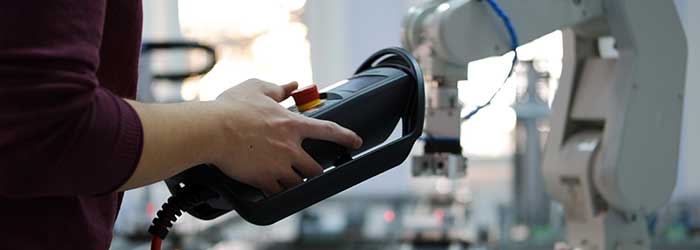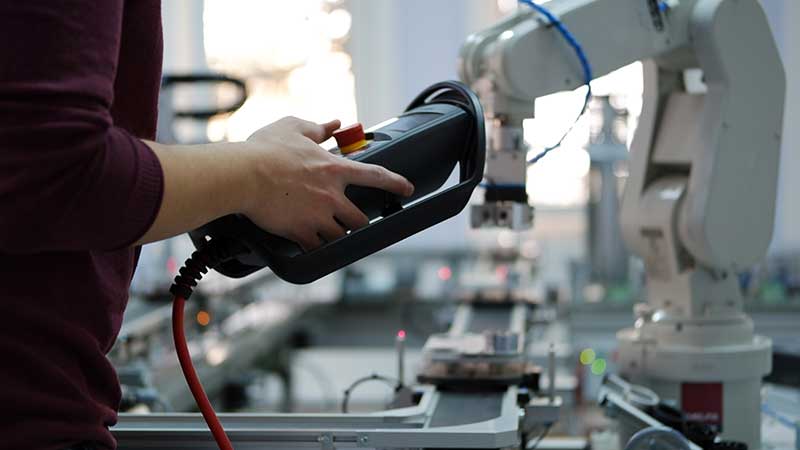
It’s the learning, stupid.
That’s the mantra we should be following as we consider the gut-wrenching implications of a rapidly changing society, radically transforming because of technology and supercharged by a global pandemic. But once again, we are facing an economic crisis where myriad solutions are being proposed but too few focus on preparing people for the coming era in which “human work” will reign.
It was only 12 years ago that we last went through a recession in which entire industries were transformed and millions lost their jobs. And yet, here we are again. Even those fortunate enough to keep their jobs are experiencing massive change – often, of course, suddenly finding themselves working remotely. All this has far-reaching consequences that we still don’t fully understand or appreciate—including the need for almost all of us to learn entirely new ways of working.
While it’s understandable that we focus on the particular conditions facing us today, the forces that are propelling the transformation of work were well established long before COVID-19, or for that matter, the Great Recession of 2008. Indeed, some call the pandemic the great accelerator because it is moving us even more rapidly into an uncertain future.
Long term, the overwhelming force driving changes in work is technology—in particular, the potential of artificial intelligence to perform an ever-increasing array of tasks. But it’s not just that some jobs will go away and new ones emerge. All jobs are constantly being transformed as automation takes over more of their inherent tasks.
Consider photographers, where 80 percent of the occupational tasks are different from what they were in 2000. The same dynamic is playing out in industry after industry.
And now, COVID-19 has changed almost all jobs. If what we do has not changed as a consequence of the pandemic, then certainly how we work has changed—in most cases, dramatically. And as we look forward to the post-COVID economy, we can expect even more change in work. All of us will need to learn new skills and develop our abilities in new ways.
These changes in work and jobs are accelerating as technology advances. In fact, with artificial intelligence, any task that is repetitive and predictable can be reduced to an algorithm and performed by a smart machine.
This means that the work of the future is human work—the work only people can do.
We know a lot about what human work and the jobs of the future will demand. To thrive in the new world of human work, people need to think critically, reason ethically, interact personally, and serve others with empathy. Technical skills still matter, but what matters more and more is a person’s ability to apply those skills in ways that solve real-world problems. Besides, technical skills are the ones that are always changing, which is why everyone needs to keep learning throughout life. That ability to learn may be the most important skill of all.
But therein lies the rub. We talk about the need to keep learning throughout life, and for the most part, I think we all understand that it’s true. But that’s not the way we actually approach learning, and it’s certainly not how our education system is set up.
Today, to have a realistic chance at a good job and career, people need more than a high school education—they need a post-high school credential with value in the workplace. But we still have an education system that is better at sorting people into predetermined roles than actually developing people’s abilities and talent.
We are also saddled with the absurd and dangerous notion that one’s future is determined by the school they attend when they are 18 years old. It fuels a high-stakes, winner-takes-all mentality about learning that is the antithesis of what is needed in a world of human work.
Is it any wonder that so many people think “lifelong learning” is more like a sentence to be served than an opportunity to be savored?
It doesn’t have to be this way. People are hard-wired to learn, and most learn best through experience. There is no better setting for learning than work itself. “Student” and “worker” are not two different kinds of people. In the world of human work, people play both roles simultaneously. The time-honored school-college-work pathway is dead, and along with it the era of “once and done” education and learning.
A big part of the problem is that we focus far too much on education and not enough on learning. In the world of human work, where you learn matters far less than what you learn. Sadly, that’s not the way it works now because we don’t really know very much about what individuals actually know and can do. In the world of human work, people’s abilities—what they have learned—must be made fully transparent to all concerned.
These same abilities are what we so desperately need for people to be active citizens in our increasingly complex and diverse world. Addressing the complex problems that threaten our democracy and society—the rise of authoritarianism, the legacy of structural racism, the existential threat of climate change—demands that citizens have the higher-level abilities human work requires. And just as human work requires learning throughout life, there is no single point where someone “graduates” as an active and engaged citizen—it is a way of being that must be fostered and developed throughout life.
The simple fact is, learning never stops. To succeed in the age of human work, we must build learning systems for all that recognize that reality.
Jamie Merisotis is president of Lumina Foundation and the author of “Human Work in the Age of Smart Machines.”
